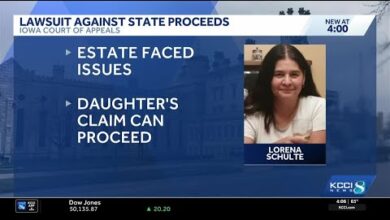‘Very long Covid’ being experienced in one in 20 cases

One in 20 people infected with Covid-19 have symptoms which last more than a year, a leading study into the virus has found.
The Real-time Assessment of Community Transmission (REACT) study, carried out by Imperial College London researchers, this week published its latest survey results which found that a “significant proportion” of people who had Covid-19 then went on to experience so-called long Covid.
“The study has shown some big variation in people’s symptoms post-Covid”
Helen Ward
In the survey, which was completed by 276,840 people, 7.5% of those who had been infected reported persistent symptoms lasting 12 weeks or more (referred to as long Covid by the report authors), and 5% (one in 20) reported symptoms lasting more than a year, a condition the study authors refer to as very long Covid (VLC).
The average duration of symptoms among REACT responses was 10 days, with one in 10 going on to experience them for more than four weeks, and one in 13 for more than 12 weeks. Almost a third of those who had symptoms for more than 12 weeks recovered within a year.
Women, the survey found, had a longer recovery time compared to men, and so did those who had pre-existing medical conditions, were infected earlier on in the pandemic, or had an acute case of Covid-19 when first infected.
The most common symptoms for those with long Covid were mild fatigue (67%), difficulty thinking or concentrating (55%) and joint pains (55%).
Difficulty sleeping, headaches, and shortness of breath were also common long-term symptoms for this group.
Professor Paul Elliott, chair in epidemiology and public health medicine at Imperial College London’s School of Public Health, said one interesting finding from the REACT survey was that the variant with which people were infected had an impact on whether they developed lasting symptoms.
It demonstrated that those infected during the wave of the Omicron variant of Covid-19, which began circulating in November 2021, were less likely to have developed long-term symptoms.
“Our latest findings from the REACT study offer further insights into the underlying factors which are associated with prolonged symptoms after initial Covid-19,” he added.
These findings, which were published in the journal Nature Communications, led authors to conclude that Covid-19 was having a “lasting impact” on health and wellbeing.
The survey’s participants were selected randomly in stages among cross-sections of the population, and thus is considered representative of the UK.
Professor Helen Ward, also of the School of Public Health, said the study had provided “valuable insights” – but that further interviews were being carried out with study participants to try and better understand the variation in experiences and wellbeing in those who have continued to have symptoms.
“The study has shown some big variation in people’s symptoms post-Covid,” said Professor Ward.
“We are also planning further follow-up of people involved in the REACT studies to assess the broader longer-term impact of the pandemic on health and wellbeing.”
Principle clinical academic fellow at the School of Public Health and REACT first author, Dr Christina Atchison, added: “While the landscape has changed considerably since the early peak of the Covid-19 pandemic, this analysis shows that a proportion of adults are still experiencing lasting symptoms.”
She said the fact that those infected when Omicron was dominant were far less likely to report symptoms lasting beyond 12 weeks than those infected in the very early stages of the pandemic “may reflect the changing levels of immunity in the population from previous exposure to the virus and vaccination”.







